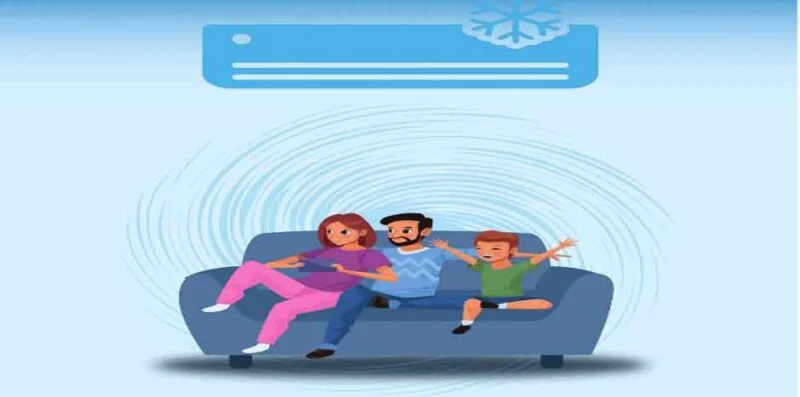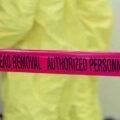
If your air conditioning system has been affected by severe storms, you must contact your home insurance provider as soon as possible. They may send an inspector out to assess the damage and estimate repair costs.
Repairing your unit is crucial for avoiding breakdowns and increasing efficiency, while regular maintenance helps prevent potential damages from occurring.
- Thermostat Issues
The thermostat plays an essential part in maintaining comfort and efficiency within any air conditioning system, so when it’s not functioning as it should it can have serious repercussions for home comfort and efficiency.
If your thermostat isn’t responding to commands, first check its power source; replace batteries as needed; if that does not resolve the issue consider inspecting wiring connections or professional services to do the work if it persists. You can click the link: https://www.consumerreports.org/appliances/thermostats/ to learn more about smart thermostats.
Other signs that your thermostat is acting oddly include inaccurate temperature readings and poor calibration. You could try cleaning the sensors with compressed air or brushing, but ultimately you may need to replace the whole thermostat altogether.
A sudden spike in energy bills might also indicate that the thermostat is working harder than expected; similarly, if your AC turns on but won’t cool, this could indicate mechanical issues.
- Coolant Leaks
Coolant is the liquid component of an air conditioning unit’s coils that absorbs the heat produced by your home, creating cool air for you to breathe. A leak in this substance could compromise its efficiency, leaving your home warmer than expected.
As soon as your coolant leaks, there are several telltale signs. Hissing noises coming from your AC unit could signal holes or cracks in the pipes where coolant flows; larger leaks might produce a gurgling sound; or puddles on the floor or ground may indicate it as well.
Coolant leaks often develop due to normal wear and tear, age, or improper installation; but they may also result from physical damage or accidents. Vibrations created during construction work could cause AC pipes to come crashing together and stress fittings over time. The good news is that if caught early enough these issues tend to be straightforward and cost-effective to resolve.
- Clogged Ductwork
Clogged ducts can have a devastating impact on any HVAC system, creating uneven air distribution across a building and leading to various symptoms ranging from physical obstructions (like furniture blocking vents) to issues requiring AC cleaning services (mold and mildew growth).
Clogged ducts present a major barrier to airflow, forcing systems to work harder to cool or heat buildings, leading to higher energy bills and extra wear and tear on parts.
Over time, dust can build up in your ducts if they’re narrow or haven’t been maintained regularly, as well as other causes like rodent infestation or birds/insects nesting inside them. You can visit this site to learn more about the health impact of dust in the home.
Signs of clogged ducts include certain rooms being cooler or warmer than others. If this occurs, look for blockages and attempt to resolve them yourself; otherwise, consult a heating and cooling specialist for professional AC duct cleaning services.
- Damaged Compressor
Your air conditioner’s compressor is at its core; its primary job is pressurizing refrigerant, extracting heat from your home, and dissipating it outside. A properly functioning compressor ensures you stay cool all year round; when yours breaks down it may not cool your space effectively and be expensive to repair.
Hearing chattering, squealing, whining, or rattling from your compressor could be a telltale sign of mechanical failure. Your compressor has multiple moving parts that require regular lubrication for proper functioning.
Lubrication for compressors comes from their internal compressor oil. Without enough of this lubricant or with leakage occurring, moving parts will experience excessive friction which will eventually lead to their destruction and burnout.
- Failed Contactor
If your air conditioning unit keeps cycling itself on and off, this could be caused by a failed contactor. These tiny switches open and close electrical circuits necessary for running your compressor, fan, and blower motor – and when they don’t do their job they can lead to frequent switching on and off called short cycling which causes strain on systems as well as increased energy consumption.
If any of the following symptoms occur, this could be a telltale sign that your AC contactor is failing: This is when you need to seek out professional Dayton AC repairs for your unit. They can help you repair instead of replace your unit.
Regular AC maintenance can help avoid these issues from arising in the first place, and getting familiar with its mechanisms is also beneficial in terms of identifying any potential issues and taking swift action to address them quickly before they escalate into more expensive repairs in the future.


